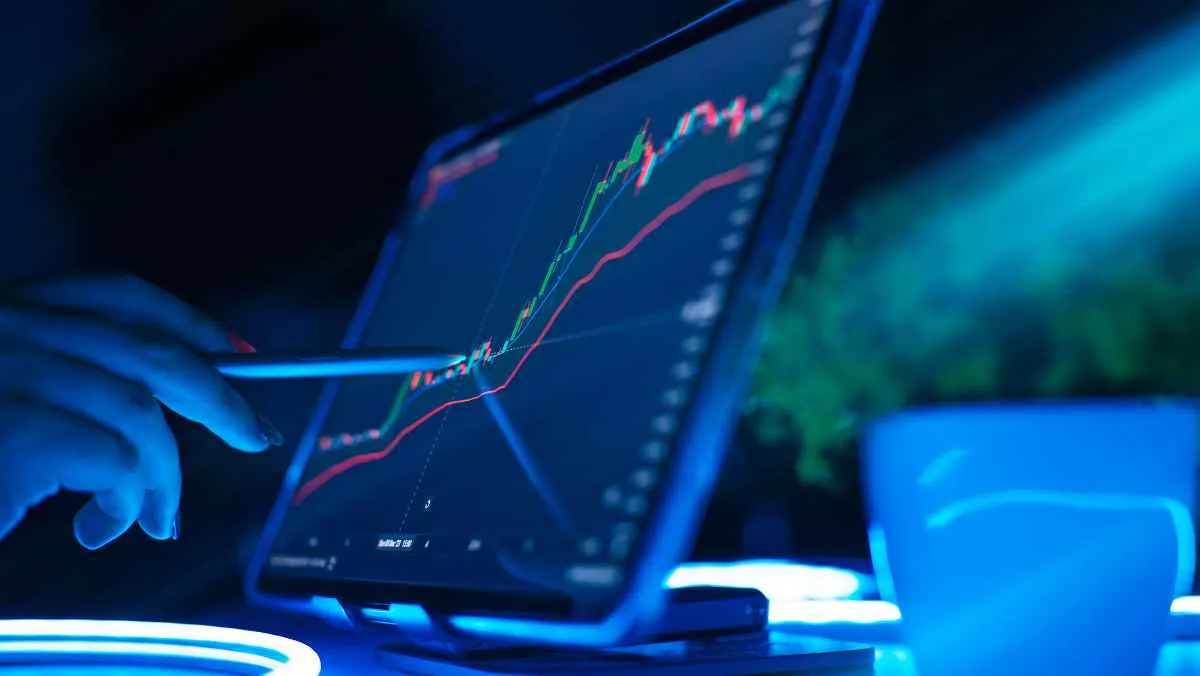In the intricate dance of global economics, few forces hold as much sway as geopolitical events. These events, ranging from trade disputes to territorial conflicts and policy shifts, can send shockwaves through markets, reshaping the financial landscape in mere moments. The interconnectedness of the global economy, amplified by globalization and advancements in technology, has made the impact of these events more pronounced than ever.
The Geopolitical Quagmire: A Modern Challenge
Geopolitical events are not confined to the realm of international relations; they are powerful disruptors of economic stability. From the US-China trade war to the ongoing conflict between Russia and Ukraine, these events have demonstrated how quickly tensions can escalate and how deeply they can penetrate the fabric of global markets.
The US-China trade war, for instance, was not just a tit-for-tat exchange of tariffs; it was a profound reflection of shifting power dynamics in the global economy. As the two largest economies in the world, the US and China are intertwined in a complex web of trade relations. When tariffs were imposed on hundreds of billions of dollars worth of goods, it was not just a blow to the affected industries but a wakeup call for businesses worldwide. The ripple effects were felt in supply chains, stock markets, and consumer prices across the globe.
Similarly, the conflict in Ukraine has exacerbated existing tensions and introduced new uncertainties into the market. Energy prices surged as Russia, a major supplier of oil and gas, found itself at the center of a geopolitical storm. The resulting inflationary pressures have forced central banks to recalibrate their policies, further complicating an already fragile economic recovery.

The Double-Edged Sword of Policy Shifts
Policy shifts, often born out of geopolitical considerations, also play a pivotal role in shaping market dynamics. The Brexit referendum is a prime example of how a single decision can have far-reaching consequences. The uncertainty following the referendum led to a depreciation of the British pound and a slowdown in investment, demonstrating how political decisions can undermine economic stability.
In recent years, countries have increasingly turned to protectionist policies as a response to geopolitical tensions. While these policies may offer short-term relief by shielding domestic industries, they often lead to longer-term distortions in global trade. The introduction of tariffs and non-tariff barriers can create market distortions, disrupt supply chains, and heighten competition for finite resources, further exacerbating global economic instability.
The Human Element: Market Sentiment and Investor Behavior
One of the most fascinating aspects of geopolitical events is their ability to influence market sentiment. Investors, driven by fear and uncertainty, often act irrationally, leading to market volatility. The concept of "flight to safety" becomes particularly relevant during times of geopolitical instability. Investors scramble to secure their portfolios with assets perceived as safe havens, such as gold, government bonds, and the US dollar.
However, market sentiment is a double-edged sword. While fear can lead to panic selling, it can also create opportunities for contrarian investors. history has shown that markets often recover from geopolitical shocks, especially when the underlying economic fundamentals remain strong.
In the case of the US-China trade war, while the initial phases saw significant market volatility, investors gradually adapted to the new reality. Companies began diversifying their supply chains, and markets found new equilibria. This adaptability underscores the resilience of global markets, even in the face of significant geopolitical headwinds.
The Road Ahead: Navigating Uncertainty
As the world continues to grapple with an increasingly multipolar geopolitical landscape, the impact of geopolitical events on global markets is likely to intensify. The rise of emerging economies, shifting alliances, and the growing influence of non-state actors all contribute to this complexity.
Investors must navigate this uncertain terrain with a combination of caution and strategic foresight. Diversification remains a cornerstone of risk management, as it allows portfolios to weather the storm of geopolitical shocks. Additionally, staying informed about geopolitical developments and understanding their potential economic implications is crucial.
While the future may be uncertain, one thing is clear: geopolitical events will remain a formidable force in the global markets. The ability to anticipate, adapt, and navigate these challenges will determine the success of investors in the years to come.
The Global Market's_reaction: A Symphony of Chaos
Geopolitical events do not merely disrupt markets; they rewrite the rules of engagement. The global market's reaction to these events is often a complex interplay of fear, greed, and uncertainty. Investors, businesses, and governments find themselves in a state of heightened vigilance, constantly reassessing their strategies.
One of the most immediate effects of geopolitical events is market speculation. Traders and investors often rush to interpret the potential economic implications of an event, leading to sharp price movements. For instance, the announcement of a new trade agreement or the escalation of a conflict can trigger swift reactions in financial markets. This speculation can amplify the impact of geopolitical events, creating a self-reinforcing cycle of volatility.
Currency fluctuations also play a significant role in the market's reaction. Geopolitical tensions can lead to a flight from riskier currencies to safer alternatives, such as the US dollar or the Swiss franc. For example, during times of heightened geopolitical uncertainty, the US dollar often strengthens as investors seek refuge in its stability. This can have knock-on effects on global trade, impacting export revenues and corporate earnings.
The Long-Term Economic Impact
While the immediate effects of geopolitical events are often dramatic, their long-term economic impact is equally significant. Geopolitical tensions can lead to structural changes in global supply chains, forcing businesses to reassess their operations and seek alternative sources of raw materials and labor. This reshoring of supply chains, while intended to mitigate risks, can lead to increased costs and reduced efficiency.
Moreover, geopolitical events can influence central bank policies. The uncertainty resulting from these events often leads to a dovish stance from central banks, which may lower interest rates and implement quantitative easing measures. While these measures aim to stabilize the economy, they can also fuel asset bubbles and create distortions in financial markets.
Strategic Navigation: A Guide for Investors
In the face of such uncertainties, investors must adopt a strategic approach to navigating geopolitical risks. Diversification remains a key strategy, as spreading investments across different asset classes, regions, and sectors can mitigate the impact of any single event.
Staying informed is another critical component. Investors should closely monitor geopolitical developments and assess their potential economic implications. This requires a deep understanding of global political dynamics and their historical precedents.
Additionally, maintaining a long-term perspective can help investors ride out the volatility caused by geopolitical events. History has shown that markets eventually recover from shocks, and short-term losses can be offset by long-term gains.
: The Ever-Changing Landscape
The effect of geopolitical events on global markets is a testament to the intricate balance of power, economics, and politics in the modern world. These events remind us that the global economy is not merely a collection of markets but a living, breathing entity influenced by forces far beyond the realm of finance.
As we look to the future, the ability to anticipate and adapt to geopolitical shifts will be a defining factor in the success of investors and economies alike. While the road ahead may be uncertain, it is precisely this uncertainty that drives innovation, resilience, and growth. By understanding the impact of geopolitical events and responding with strategic foresight, we can navigate the storm and emerge stronger on the other side.
In a world where geopolitical tensions are a constant, the global markets remain a testament to human ingenuity and resilience. They remind us that even in the face of chaos, order can be restored, and prosperity can be rebuilt.
